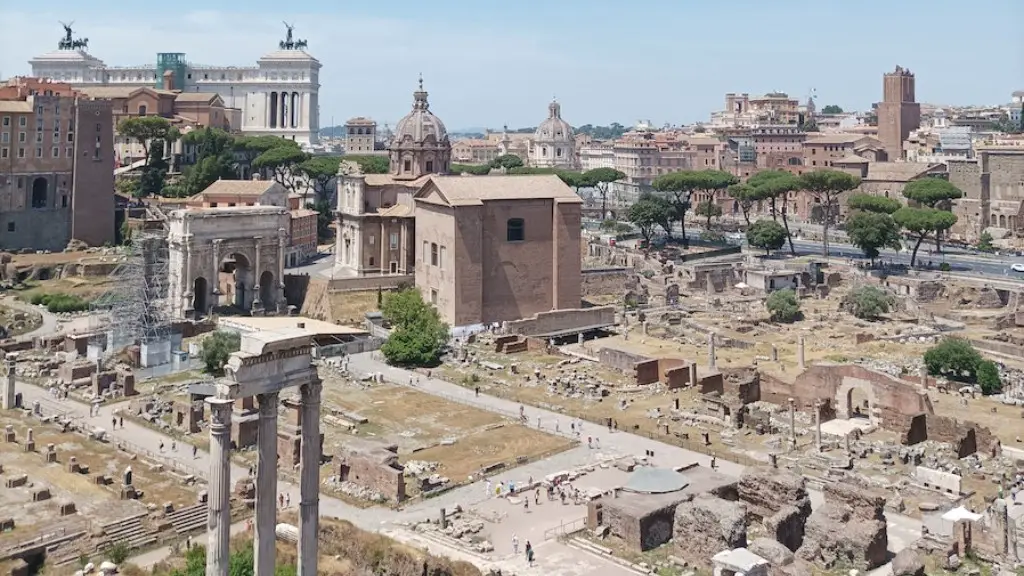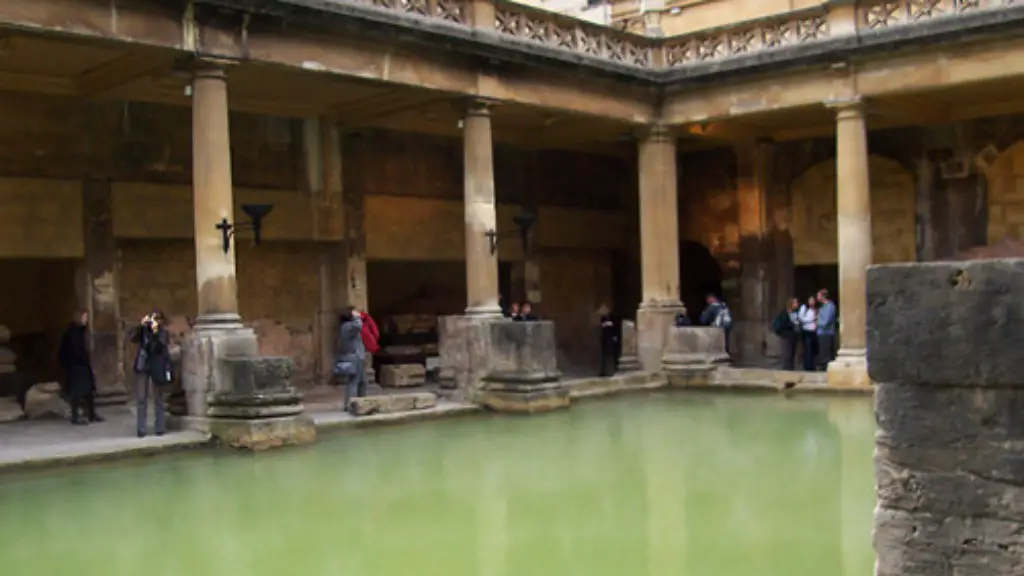Medicine in Ancient Rome was a rich field of study. Various clinics, surgeons, and physicians provided medical aid to Roman citizens. As with any civilization, the Romans had their own medical treatments and cures. These treatments and cures are still fascinating today.
The field of medicine in Ancient Rome was particularly unique. It incorporated a combination of two very different world views. The Greeks, whose culture was dominant in the region, had a strict system of medicine based on the four elements of earth, air, fire, and water. This system maintained that human health could be restored when the elements of the universe were balanced. The Romans, however, drew upon the Etruscan and Egyptian systems, which were far more empirical. The Romans used practical experience, observed symptoms, and established medical practices as the basis for their treatments.
The Romans built upon the Hippocratic tradition of healing, which had been established centuries before. This tradition stresses the importance of observation and empirical reasoning, and it was venerated in Ancient Rome. It provided the framework for the establishment of many successful medical practices. One example is the practice of bloodletting, which was used to restore balance in the body and cure a variety of ailments.
The Romans also placed a strong emphasis on prevention. They encouraged practices such as regular baths, good hygiene, and exercise. They believed in the healing powers of plants and herbs, and some of their practices have found a place in modern medicine. They developed a form of “preventative medicine” that was focused on keeping the population healthier by emphasizing the importance of taking care of one’s body.
Surgeons in Ancient Rome were highly skilled and were often employed by wealthy households. Roman surgeons were known for their wealth of knowledge and experience. The physicians of the period were divided into two tiers. The lower tier included those who were most accessible and the upper tier contained more educated, knowledgeable physicians.
The Roman Empire also developed a unique system of social healthcare. The government created a series of public goods, such as public baths, that provided a range of medical services. The government also provided grants to physicians, established hospitals, and created regulations to protect physicians and their patients.
Medicine in Ancient Rome was a complex and multilayered approach to healing. It draws on the traditions and experiences of multiple cultures and synthesizes them into a single and comprehensive way of understanding health. While it is easy to admire the sophistication of their medical practices, it is also important to recognize the many challenges they faced in the face of a poor understanding of the human body.
Understanding Health
The Romans sought to understand health and disease through a combination of observation, empirical reasoning and philosophical inquiry. They believed that with knowledge and understanding, they could better treat and prevent illnesses. Roman physicians sought to understand health and wellness through classical medical texts. They also examined patient records, studied different cases, and incorporated the latest findings from botany, zoology, and chemistry.
In their pursuit of understanding health, the Romans paid particular attention to “humoral theory”. They believed that the body contained four “humours” – black bile, yellow bile, phlegm, and blood. They believed that the balance of these humours was essential for good health and that treatments should seek to restore this balance. This theory has had a long-lasting impact on medicine and is still used in modern medical practice.
The Romans also placed an emphasis on the importance of diet. They prescribed special diets for certain illnesses and urged people to watch what they ate. They believed in avoiding foods that would damage their health and sought to promote healthy eating. Today, the advice of Roman physicians on diet still resonates.
The Romans believed in the power of nature to heal. Herbs and plants were used to treat a range of ailments and were seen as a source of medicinal power. The use of herbs in medicine was so widespread that it developed into a profession. In Ancient Rome, herbalists were considered to be experts in the field of medicine.
Advances in Treatment
The Romans believed in the power of the gods to heal. They developed various rituals and practices that were meant to entreat the gods for healing. Some of these rituals were elaborate and involved offering sacrifices, burning incense, and chanting prayers. Roman physicians also used herbal medicines, and some of their treatments have found their way into modern medicine.
The Roman Empire also saw advances in the field of surgery. Surgeons were highly skilled and used a range of techniques to perform operations. Some of these techniques are still used today. Roman surgeons also pioneered the use of anesthesia, which was a major advancement in surgical care.
The Roman Empire also experienced a period of relative peace and stability that allowed the concentration of resources to health care. This stability enabled the establishment of hospitals and clinics throughout the Empire. The government also provided directions to physicians and created regulations to protect their patients. This resulted in a more organized medical system and improved medical services.
The Romans also improved medical instruments. They developed tools to measure temperature, pulse, and blood pressure. They also advanced the design of scalpels and scissors, which were used for a variety of operations.
Legacy of Ancient Roman Medicine
The legacy of Roman medicine has been long-lasting and profound. The Roman system of regulation and control of medical procedures has endured through the ages and is still seen in modern-day practices. The use of herbal medicines has also been incorporated into modern medical practice. The Romans also placed a strong emphasis on prevention, which is still the basis of modern medical theory.
The Hippocratic tradition of observation and empirical reasoning has also been honored throughout the centuries. This tradition, combined with the advances in surgical practices, shaping of medical instruments, and the promotion of hygiene, paved the way for the success of modern medicine.
Significance of Ancient Roman Medicine Today
While the practice of medicine in Ancient Rome is fascinating, it is important to recognize the significance it has for our modern-day understanding of medicine and healthcare. The Roman Empire’s contribution to medicine and healthcare is often overlooked, but it is integral to our current understanding and practice of medicine.
Today’s hospitals, clinics, and doctors owe their existence in some measure to the advances made in Roman medicine. The Hippocratic tradition, practices of observation and empirical reasoning, and advances in surgical techniques are all still essential components of modern medicine.
The legacy of Roman medicine also serves as a reminder of the continuing importance of prevention. Good hygiene, healthy eating, and exercise have been recognized for centuries for their role in promoting health and preventing disease. The importance of prevention is still relevant today and is an essential part of any comprehensive healthcare plan.
Impact of Roman Medicine on Other Civilizations
The impact of Roman medicine extended far beyond the boundaries of the Empire. As the Romans spread their influence throughout Europe, other cultures adopted their medical practices, philosophies, and theories. The legacy of Roman medicine is still seen in many parts of the world today.
The Roman system of regulation and control also contributed to the establishment of modern medical ethics and the foundation of medical law. Today, the Hippocratic oath is still taken by doctors as a reminder of their commitment to upholding the highest standards of medical practice.
The Romans also developed many innovative treatments and therapies. These treatments and therapies, while they might vary in terms of their efficacy, continue to be used in modern medicine. These treatments still provide relief to millions of people and are a testament to the ingenuity of the Roman physicians.
Statistical Overview of Ancient Roman Medicine
The Roman Empire was a vast and powerful kingdom that exerted a great deal of influence over Europe for centuries. Its impact on the medical profession was equally impressive. By the beginning of the 5th century AD, the Roman Empire boasted 5,400 physicians, 1,500 medical schools, and 75 public hospitals.
In the early days, the Romans lacked many of the modern medical technologies. However, they were able to make great advances in the field of medical knowledge by carefully studying the ancient texts and making use of the latest discoveries.
Along with its advances in medical knowledge, the Roman Empire also established a system of public welfare. This system provided free medical care to citizens and helped promote better health and wellbeing among the populace.
The Roman Empire was a leader in medical knowledge and innovation. Its impact still resonates in the modern world, and the legacy of its contributions to the medical profession is one that will be remembered for many years to come.





